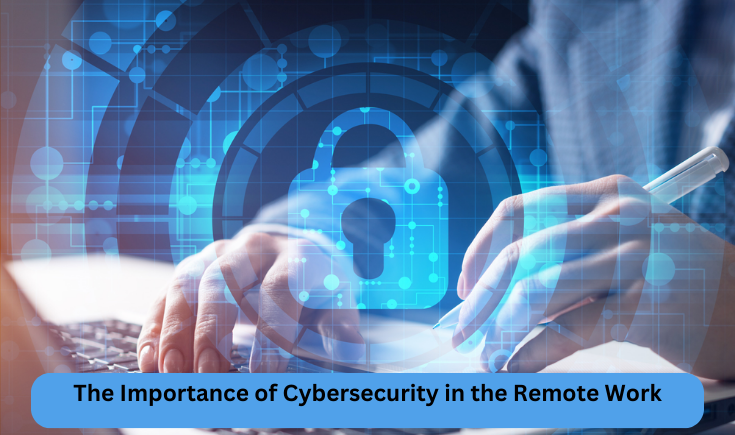The Importance of Cybersecurity in the Remote Work Era

Remote work has, in the last few years, transitioned from a growing trend to a standard practice for many businesses. It introduced flexibility and higher productivity but new paths into cyber threats as well. VCS IT Solutions recognizes that making cybersecurity one of the top priorities has to occur within this remote work era because it's a leading IT solutions provider in the US. Let us delve into why securing remote work environments is crucial and how businesses can arm themselves in this digital landscape.
The Rise of Remote Work and Cybersecurity Challenges
The COVID-19 pandemic accelerated the implementation of remote work at a faster pace, which makes it a new normal in many organizations as this is increasingly wide. This transition, though very effective in many sides, poses a heavy number of cyber security challenges:
- Increased Attack Surface:This would make the attack surface enlarged because the remote environment extends the corporate network to the home area of the employees in a way that becomes hard to protect. Every remote device and the network point entry can be an attack point for cyber-criminals.
- Unsecured Home Networks: Most of the employees will be using their personal devices to work and accessing Wi-Fi networks at home. These are less secure than those of corporate networks, making it more susceptible to attacks.
- Phishing and Social Engineering: Cybercriminals exploit the uncertainty and absence of in-person verification that comes with remote work scenarios to conduct advanced phishing attacks, usually targeting employees with legitimate-looking emails or messages under the pretense of requesting information that could be sensitive.
- Data Privacy Issues: With the remote work trend, the data that represents sensitive company information would probably find its way across public or not very secure networks, at an increased risk of breaches and unauthorized access.
The Consequences of Poor Cybersecurity
Failing to address these cybersecurity challenges can have severe consequences for businesses:
- Data Breaches: they are supposed to protect all relevant data and can lead to huge financial losses, legal repercussions, among others, besides destroying the reputation of the company.
- Financial Losses: Direct financial losses from fraud, ransomware payments, or cost to mitigate the attack.
- Phishing and Social Engineering: Cybercriminals exploit the uncertainty and absence of in-person verification that comes with remote work scenarios to conduct advanced phishing attacks, usually targeting employees with legitimate-looking emails or messages under the pretense of requesting information that could be sensitive.
- Loss of Trust- Customers and partners expect their data to be safe. A cybersecurity breach can remove the trust, which might entail loss of business opportunities.
Essential Cybersecurity Measures for Remote Work
Given the heightened dangers of the preceding, enterprises would need a comprehensive cybersecurity strategy in safeguarding remote workers. Observe the following best practices and include them in your cybersecurity policy:
- MFA: MFA increases the security layer because the user needs to authenticate their identity through multiple avenues. For example, he or she could authenticate using a password and a one-time code sent via a telephone. This significantly makes it challenging for the attacker to gain unauthorized access to an account.
- Financial Losses: Direct financial losses from fraud, ransomware payments, or cost to mitigate the attack.Utilization of Virtual Private Networks (VPNs): VPNs encrypt internet connections, meaning cybercriminals cannot intercept the data. For employees who accessed company resources via virtual private networks, it ensures that data, which is transmitted over the internet, is safe
- Training of Employees and Education: Educating employees on typical cyber threats and attacks can be done through training. Training makes employees alert towards malicious activity and informs them as to why security protocols are essential.
- Access Controls: Restrict access only to authorized persons. Based on the user role, their privileges can be defined, as well as the principle of least privilege, to protect against most forms of unauthorized access.
- Data Encryption: Sensitive data is always encrypted both at rest and in motion. This way, even if the data is intercepted or accessed unauthorizedly, it will remain unreadable and therefore unusable.
- Regular Security Assessments: Perform regular security assessments and audits on your remote work environment. This form of proactive assessment will identify possible areas of weakness before hackers do.
VCS IT Solutions: Your Partner in Cybersecurity
At VCS IT Solutions, we understand that businesses operate in unique environme nts that may challenge the remote work environment from being adequately secured. Our team of cybersecurity experts is committed to providing tailored solutions that counter emerging threats in protecting your organization. We'll implement advanced security measures and offer ongoing employee training throughout the process of defending your business against emerging remote work era threats.
Remote work introduces new challenges for the cybersecurity of a business, which has to protect its data, finances, and reputation. It is only through the implementation of effective security measures and the collaboration with accomplished IT solutions providers like VCS IT Solutions that businesses can feel secure in this new environment. Today, with the new normal of remote work, practicing cybersecurity is not just advisable; it's required as well.

